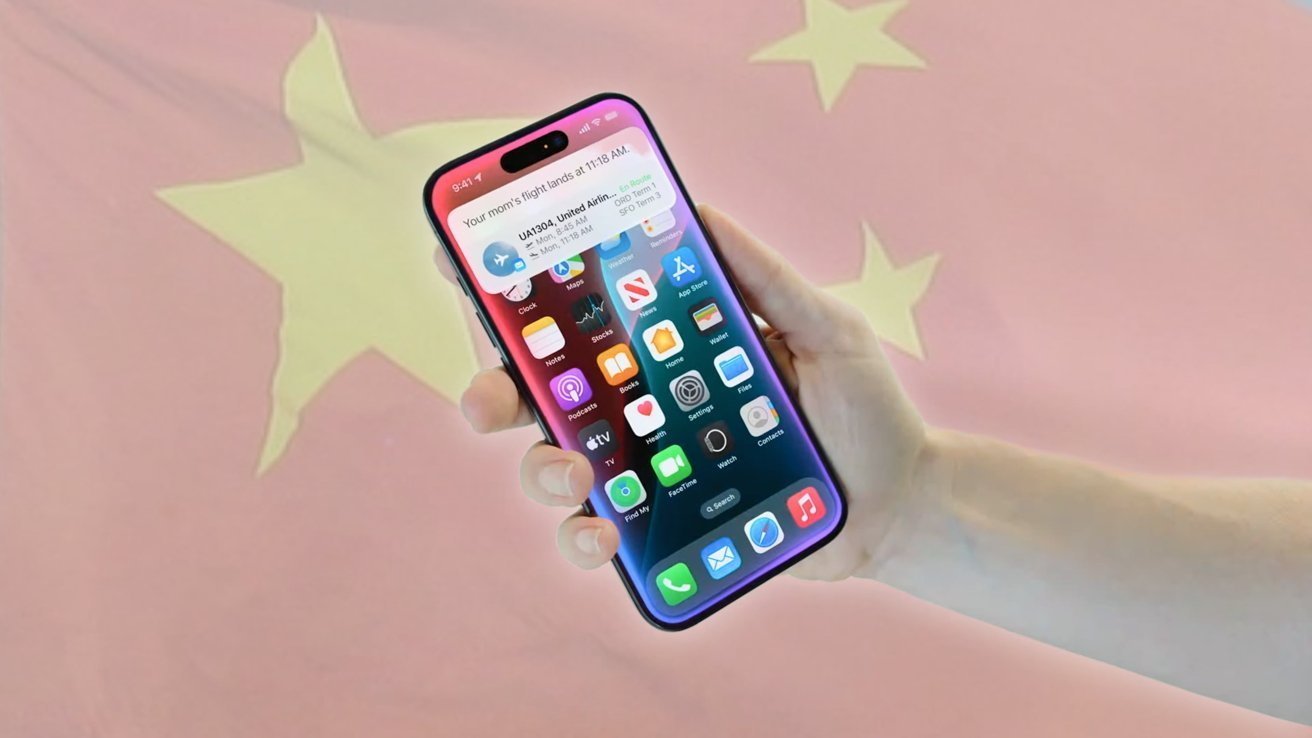Trump trade war delays Apple Intelligence's debut in China
Apple's eventual rollout of Apple Intelligence in China has hit delays, thanks to regulatory issues raised in response to President Trump's tariffs.

Apple Intelligence still isn't available in China, and won't be for some time
Apple has been working with Alibaba to bring its Apple Intelligence suite of generative AI features to iPhones in China. While the two tech giants have worked together on the project, it has hit a roadblock that has forced a delay in its introduction.
According to a report on Wednesday morning by the Financial Times, applications from Apple and Alibaba to release the AI features have not gained the approval of the Cyberspace Administration of China. The regulatory rubber stamp is required in China by law, which prevents Apple from adding them to iOS.
Two sources of the report say that the blockage is due to the increasing tensions between China and the United States. By this, the main reason is said to be the trade war and tariff activity instigated by the current administration of President Donald Trump.
To Apple, the block could be an expensive exercise, since the introduction of the features could help revive sales in the country. With other smartphones and devices already on the market with their own AI features, the gulf in AI technology could widen as the regulators hold off from approving Apple's proposals.
Trouble with tariffs
While the regulator won't publicly confirm it's a move against the tariffs, China does have some form for retaliation when it is attacked. Especially when considering what's happened in 2025 so far.
The April Liberation Day introduction of so-called "reciprocal tariffs" by the U.S. against almost every country, with China hit worst with a 34% reciprocal tariff, bringing its total import tariff to 54%.
The event triggered a tit-for-tat escalation of tariffs that eventually resulted in a U.S. tariff against China of 145%, with China holding a 125% tariff against U.S. goods imports.
After the bloodbath that led to Apple benefiting from a "semiconductor tariff" instead of the usual import tariff, it was revealed that China had did something else to escalate tensions.
By April 14, it was reported that China had placed a series of rare earth minerals and magnets on an export control list, requiring ministerial licenses to ship them out of the country. These minerals are essential to supply chains around the world, especially in the construction of technology-related products.
Mid May saw the two countries decide to try and negotiate a new trade deal, with most of the tariff raises cut back.
Even so, the United States has continued to beat the drum for Apple to shift production out of China and to U.S. shores.
Given China's previous actions when faced with demands from the United States, it's hard not to believe the latest action to be retaliatory in some way.
Read on AppleInsider

Comments
The smartphone market in China is so big that 1% extra market share locally = 1% extra iPhone sales globally. It is the most obvious path towards growth for Apple.
Apple under Cook dropped from #1 to #3 in market cap. Other companies have outperformed Apple and this certainly doesn't help.
Cook is penny-pinching and trying to win by fighting the battles of yesterday. How did that strategy work for IBM, Intel, or Xerox?
You need to widen your perspective.
Apple has literally been behind, and basically across the board, for years.
Every WWDC for the last few years has been one long presentation of longstanding Android/HarmonyOS ideas.
Hardwarewise it's been a similar story. Cameras, batteries, charging, finish...
And they only upped the base memory options on iPhone because of AI.
Even the switch from notch to cutout.
Satellite voice calls to high orbit satellites?
Does Apple have NearLink?
Take long hard look at what is actually out there on non-iOS devices (including cars!). You will be very surprised.
Apple's problems in China, for example are only exacerbated by the lack of AI. AI isn't the only issue.